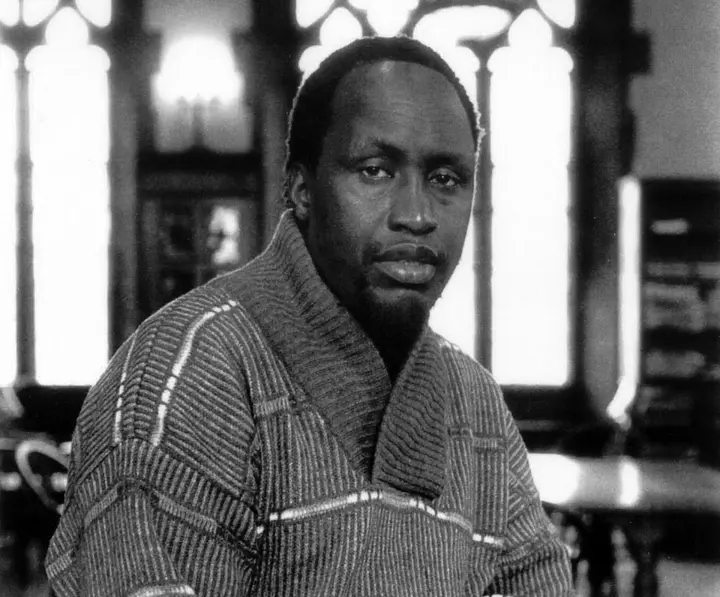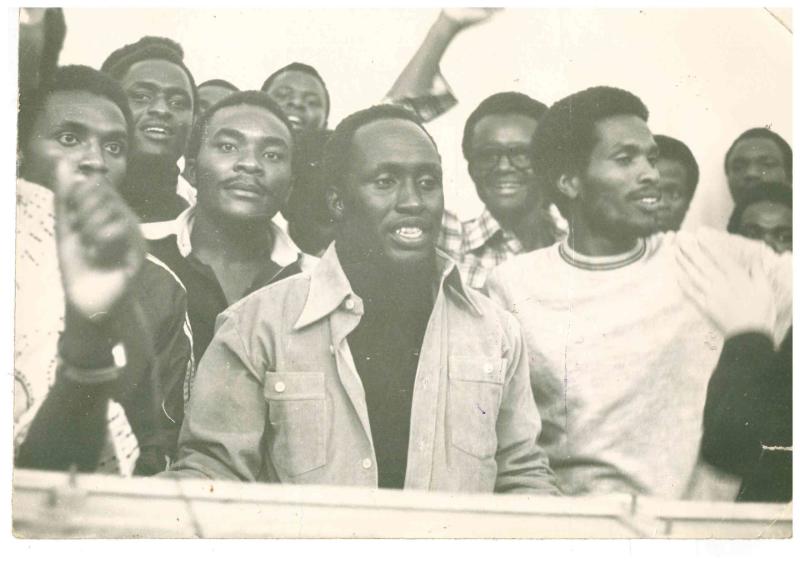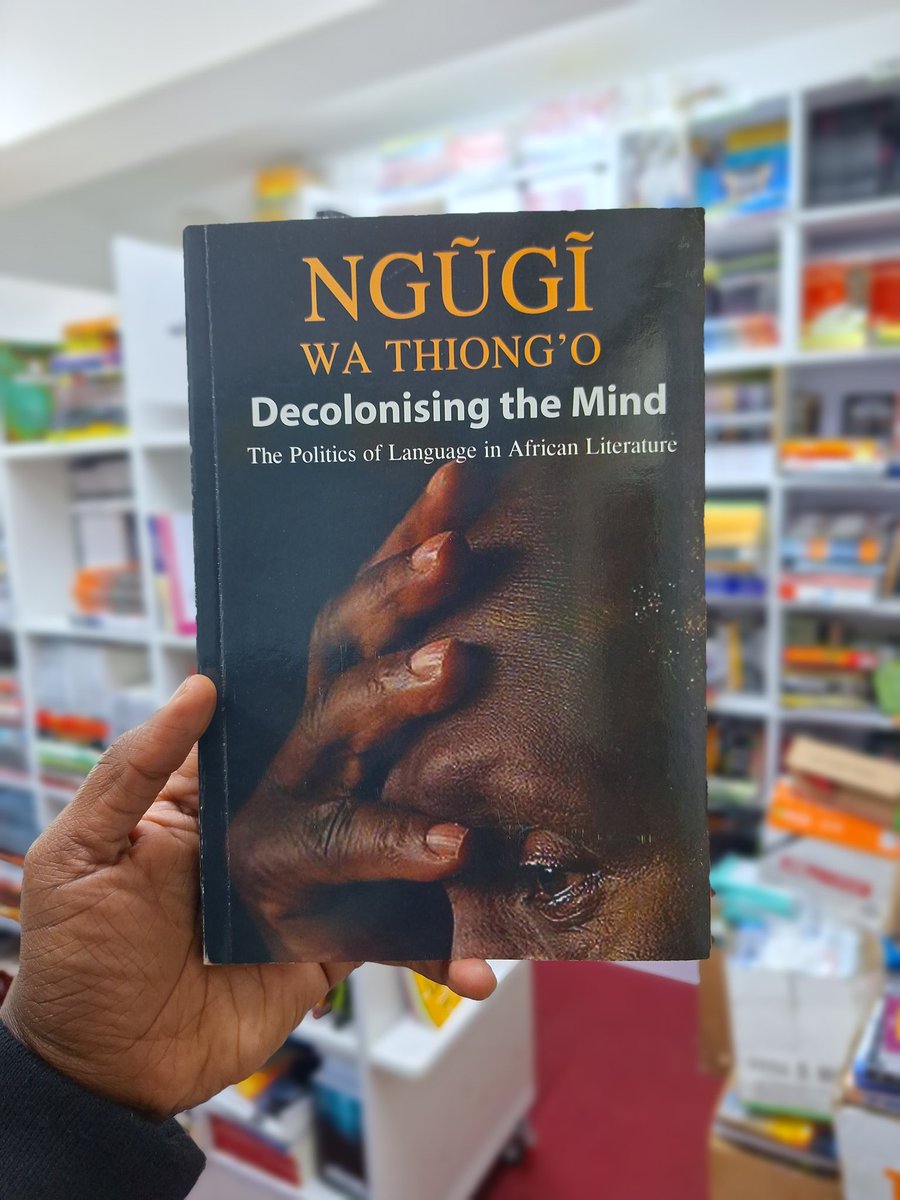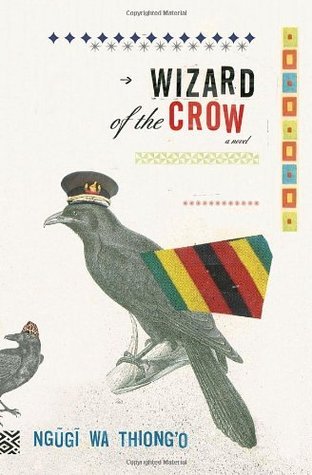Ngugi wa Thiong'o is a literary giant of African literature, renowned for his literary excellence, cultural activism, and advocacy for decolonization. He was born in 1938 in Kamiriithu, Kenya, and has made an indelible mark on the literary world through his novels, essays, and plays.
His works deal with themes of colonial exploitation, cultural identity, and the political function of indigenous languages in nation-building. Over the years, he has become a key figure in the struggle to reclaim African identity through language and literature.
Early Life and Literary Beginnings
Ngugi wa Thiong'o, born James Ngugi, grew up in colonial Kenya during the British occupation. His early life was shaped by the brutal realities of British colonial rule and the Mau Mau war of independence, which had a lasting effect on his perspectives of freedom and justice. He studied at Alliance High School, a prestigious school that provided him with an academic foundation that later propelled him to Makerere University in Uganda. It was at Makerere that he wrote his first great novel, Weep Not, Child (1964), the first English-language novel to be published by an East African writer. Set against the backdrop of the Mau Mau rebellion, this novel poignantly captures the struggle for Kenyan independence.

On the heels of this triumph, Ngugi followed with The River Between (1965), a novel of cultural conflict ushered in by colonialism, and A Grain of Wheat (1967), a searing drama of the impact of colonialism and the fight for independence. These works through this period established him as a leading literary voice in Africa, merging historical realism with passionately personal storylines.
Transition to Writing in Indigenous Languages
In the 1970s, Ngugi took a dramatic turn and rejected English as the primary medium of his works in favor of the local African languages and particularly Gikuyu. For him, language is an instrument of cultural imperialism, and freedom lies only in the revival of native languages. This was not merely an abstract shift in philosophy but also a call to action.
His play Ngaahika Ndeenda (I Will Marry When I Want), which he co-authored with Ngugi wa Mirii, was performed in 1977 in an open-air theater in Kamiriithu and had the involvement of local people in political discourse. The play was banned by the government because of its radical themes of class struggle, land ownership, and corruption among the government elite, and Ngugi was subsequently detained without trial.

While in detention at Kamiti Maximum Security Prison, he wrote Caitaani Mutharaba-Ini (Devil on the Cross) on toilet paper, which was the first novel to be published in Gikuyu. This act of bravery cemented his status as a bold defender of cultural independence and the use of indigenous languages in literature.
Political Exile and Continued Activism
After his release, Ngugi was under perpetual harassment from the government, which ultimately forced him into exile in 1982. He lived for some time in the United Kingdom and later in the United States, where he continued his literary and political activism. Despite being in exile, he remained a vocal critic of neo-colonialism, dictatorship, and economic exploitation in Africa.
In 1986, he published Decolonising the Mind: The Politics of Language in African Literature, a classic that confronts linguistic imperialism and urges African writers to use native languages. The book has since become one of the most influential works in post-colonial studies.

His later novels, including Matigari (1986) and Wizard of the Crow (2006), showcase his mastery of magical realism while addressing theme issues of dictatorship, power, and resistance. The novels have been widely studied in universities across the world and continue to influence contemporary African literature.

Legacy and Impact
Ngugi wa Thiong'o's influence extends beyond literature to political and cultural activism. His fight for linguistic decolonization has led to a new generation of African writers embracing their own languages. He has received numerous awards, including multiple nominations for the Nobel Prize in Literature, and honorary doctorates from institutions globally.
His work is studied globally in literature, post-colonial studies, and African studies courses. His arguments on language as a tool for cultural liberation have shaped debates on African identity, education, and literary production. Well into his 80s, Ngugi continues to write, teach, and agitate for linguistic and cultural independence.
Conclusion
Ngugi wa Thiong'o is more than an author; he is a revolutionary who has reshaped African literature and cultural theory. His uncompromising struggle for linguistic and cultural independence is a source of inspiration to people globally. His writings have not only given voice to Africa's past but have also charted the course to an African future where African languages and identity are firmly rooted and celebrated. With his works still being read and studied across the world, Ngugi's legacy as a literary giant and cultural revolutionary is beyond reproach.
Ngugi wa Thiong'o: A Literary Luminary and Cultural Revolutionary